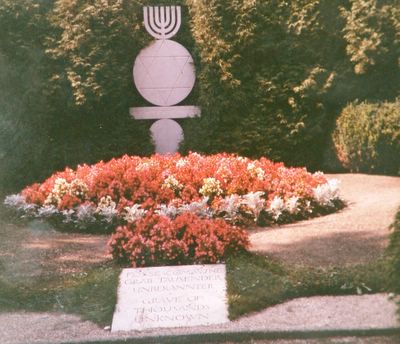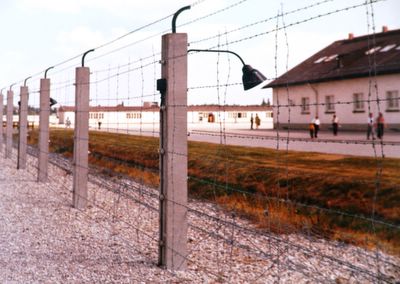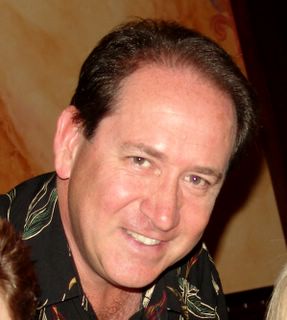Ecumenical Simon Weisenthal

"Grave of Unknown Thousands" Dachau 1971
[click on photo to enlarge]
Photo by Goldenberg
Dachau 1971
[click on photo to enlarge]
Photo by Goldenberg
I have survived. And as a survivor I am a witness. If this survival, of the horrors that are summoned up today in the term HOLOCAUST, is to have had any purpose, then it is above all that of keeping awake the memory of the unimaginable, to prevent forgetting and repression and to build all this into the vision of a better future, where such things or anything like them can never happen again anywhere in this world. --Speech at Mauthausen on 7.5.1995 Simon Wiesenthal
Simon Wiesenthal, who after surviving five death camps helped track down Nazi war criminals and then spent the rest of his life fighting anti-Semitism and prejudice against all people, died Tuesday. He was 96.
Wiesenthal, who helped find one-time SS leader Adolf Eichmann and the policeman who arrested Anne Frank, died in his sleep at his home in Vienna, said Rabbi Marvin Hier, dean and founder of the Simon Wiesenthal Center in Los Angeles.
"I think he'll be remembered as the conscience of the Holocaust. In a way he became the permanent representative of the victims of the Holocaust, determined to bring the perpetrators of the greatest crime to justice," Hier told The Associated Press.--AP 9/20/05
I own a book signed by Simon Weisenthal, titled Sails of Hope. It is the background history of Christopher Columbus, whom Weisenthal proves through his research, was Jewish. Just the simple fact alone that Columbus was a cartographer of vague origin was enough for me, since Weisenthal explained that the only cartographers in Europe in the 15th century were Jewish.
I got his signature at the time I attended a speech he gave in Los Angeles in 1978. I never forgot his main message of that speech, which was quite simple, and yet profound at the same time: Along with 6 million Jewish non-combatants murdered by the Nazis in WWII, there were also an additional 5 million civilian non-Jews, including political dissidents, religious leaders, gypsies, handicapped and retarded people, and others--11 million total non-military deaths at the hands of the Nazi killing machine. Weisenthal said that after the War, the Jewish leaders could have gotten a great deal more world-wide support for causes including the Zionist establishment of Israel as a Jewish homeland, if they had asserted the figure of 11 million killed in WWII instead of concentrating on the 6 million Jewish dead and not mentioning enough the other 5 million.
The notion of excluding acknowledging the whole group of civilians who were murdered by the Nazis was novel to me at the time, and since then I consider it as a basic theme of my development of views against bias, bigotry, and racism. Until the citizens of the United States, and by extension the people of the world, see the plight of a single group as the responsibility of everyone, the lesson that Weisenthal referred to above about the Holocaust will not have been learned.

No comments:
Post a Comment
Comments signed Anonymous will not be published.